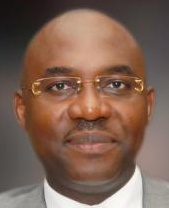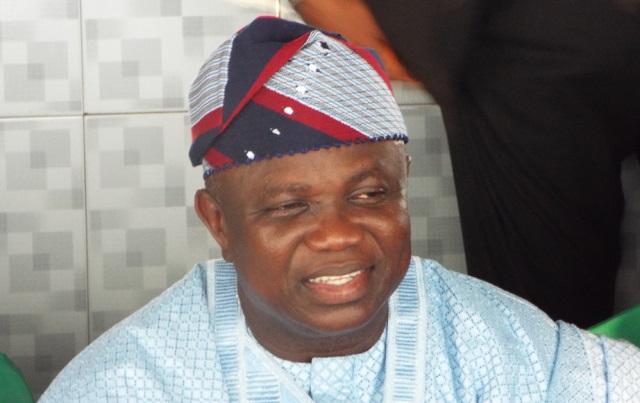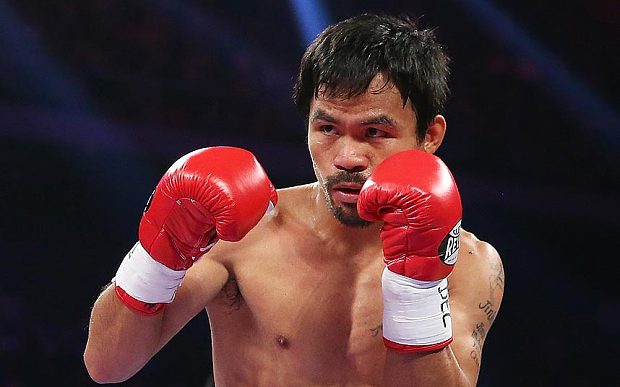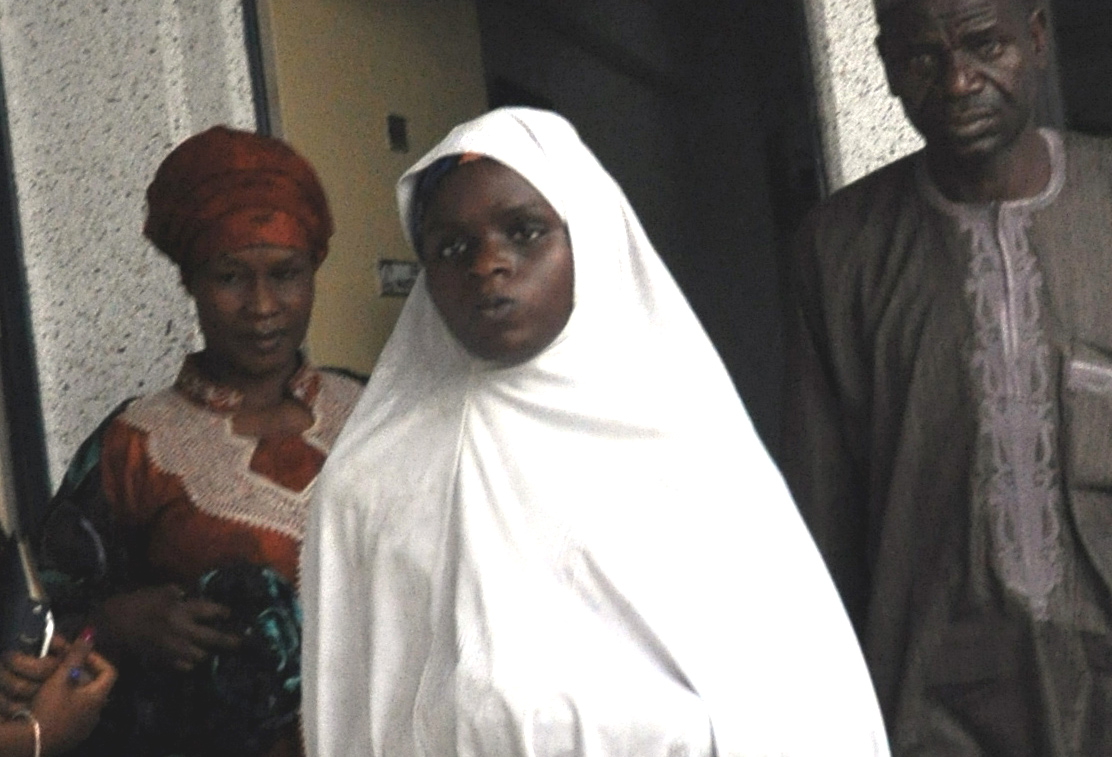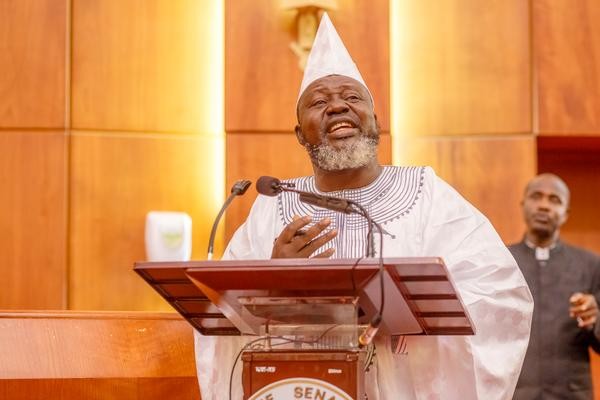By Louis Odion
Though isolated, the recent budget-padding comedy in Abuja and lately the Ese scandal in Kano invariably underscore one acute elite affliction in contemporary Nigeria: an obsession to exercise power and the unwillingness to bear its responsibility.
The pathology is what manifests today whenever President Buhari goes about issuing threats to deal ruthlessly with the “budget mafia” believed to have sexed up figures in the 2016 appropriation bill in view of the dust raised at the National Assembly. But a more honest response should have been an acceptance of responsibility ab initio by Mr. president on whose desk the buck stops.
Apparently following their principal’s odd footsteps, ministers have, in turn, made a huge theatre of publicly disowning the numbers ascribed to their respective ministries, departments and agencies as if vetting the figures was not part of their briefs as CEOs of the MDAs to begin with. Health minister, for instance, swore “budget rats” ate up the documents he originally submitted. No one is ready to defend the allocation of N3.87b for capital projects at the Abuja State House Clinic while all the nation’s teaching hospitals individually got peanuts. Or why a whopping N576m was earmarked for the construction of the residences of the Vice President’s ADC and CSO among other outlandish entries.
Taken together, the impression thus created is that whereas the government is exhorting the citizens with evangelical fervor to tighten their belts for an exceedingly lean year ahead, its own hierarchs are ironically busy loosening theirs to take more fat in their mid-sections. Not surprising, various conspiracy theories have since been mushrooming around the budget fiasco. Perhaps the most outlandish is the suggestion that the whistle was blown at the Senate by forces sympathetic to the embattled Bukola Saraki as a fight-back over his unfinished business at the Code of Conduct Tribunal.
Advertisement
If true, that only begs the issue. In case the Buhari handlers don’t know, they should be enlightened that the signature the president appended to the document before its presentation to the National Assembly on December 22, 2015 is tantamount to a proof of ownership and, therefore, a provisional claim of responsibility. Much more compelling is the obligation to admit that the seed of the present scandal was inadvertently sown with the inexplicable delay in constituting the federal cabinet last year.
Hence, the initiative was inadvertently ceded to bureaucrats who, from experience, are hardly any different from buccaneers. In fact, Buhari unwittingly handed them the rope to hang him the very moment he announced in faraway France that civil servants were “the ones doing the real work” while ministers were mere “noise-makers”, in response to then growing public apprehension over the delay in raising the federal cabinet.
This writer had his own fair share of funny experiences as a Commissioner in Edo State whenever it was time to draw budget for the coming year. I recall that one fixture that kept resurrecting like a bad coin was the proposal to set up a “processing studio” for the printing of “official photographs”. But in my own humble judgement, that’s quite anachronistic at this age of digital photography. So, each time I had to pore over the draft drawn up by my directors before the proposal was sent to the budget office, I never hesitated before spiking it.
Advertisement
But that would not stop the same item from returning surreptitiously in the draft for the next year. Ask the relevant director “Why did you put the studio again this year?”, the standard defense was “Oh, sorry, it was an oversight”. Clearly, the guys were already fixated on the formula inherited from their “ancestors” in the system who invented the “envelope-based” template. So, once directed to prepare the framework for the next budget, they would start panting all over the place, as if it was one hell of a job. Meanwhile, by the time the report was submitted, you would discover the task that had taken eternity to accomplish was not more than the triviality of merely adding or subtracting from the figures allocated to a few sub-heads in the subsisting budget.
To be fair, the incidence of some expenditures recurring year-in year-out should not be blamed on the bureaucrats. When this happens, the tendency is for the casual observer to quickly conclude that the money allocated was embezzled. Often, cash would not be released to execute such proposals throughout the year. Since budget is backed by law, the civil servants then assume the items must be repeated in the next budget until money is provided for them.
From what is now known, it is safe to assume that the 2016 budget estimate is already irredeemably trapped in the discredited “envelope”. With its promise to change the budgeting model to “zero-based” (or need-based), the Buhari administration should ideally devote the next executive retreat to re-evaluating its priorities which will, in turn, shape or reshape its policies and programmes in view of current economic realities. As for the 2017 budget, it then becomes the responsibility of the ministers to ensure it truly reflects Buhari’s character and values.
But more fundamental of all the historic responsibilities before Buhari today is the urgent need to overhaul entirely the bankrupting assumptions that have defined the budgeting process in Nigeria, particularly in the last decade. Oil boom witnessed in the era under reference invariably foisted a false sense of prosperity not only on the federal but also the state and local governments.
Advertisement
As budget figures soared from billions to trillions, so did recurrent spend, particularly personnel costs. Conspicuous consumption characterized by senseless globe-trotting disguised as “looking for foreign investors” and the insensate addiction for private jets and helicopters for even routine shuttles became the new norm in government circles. With the return of hard times, the capital side of public expenditure has naturally become the first casualty. Those accustomed to private jets (even when the more economical commercial flights are readily available) are naturally unwilling to give up their addiction.
Given his reputation for frugality, it is part of Buhari’s moral obligations today to help rid the land of such prodigalities.
After Abuja, we proceed to Kano where the story of Miss Ese Oruru freed Monday after seven months in captivity and sexual enslavement has continued to prick the conscience of an irresponsible nation. After the national outcry was spear-headed by The Punch newspaper last Sunday, how pathetic that the Kano Emir, Sanusi Lamido Sanusi II, would resort to plumbing deep into the cesspool of illogic in an attempt to evade responsibility for the seven-months-long atrocity that transpired at least to his knowledge, if not under his watch.
To be sure, Sanusi is not just another monarch in Nigeria today. His reign as CBN governor would perhaps be remembered by future historians more for its muscular activism on issues that transcended the boardroom than policy-formulation and execution that should ordinarily define it. A crusading temper he seems to have transposed to the Kano stool with his progressively radical posturing on cultural to civic engagements.
Advertisement
This precisely is what then makes Sanusi’s implied complicity in the Ese infamy and his tenuous denial of responsibility very unacceptable indeed. The nation’s worst fears were confirmed Wednesday following reports that the abducted girl is now 5-month pregnant after being examined by a medical team at the police headquarters in Abuja. That perhaps explains why the under-age girl had to be mummified with a white hijab before being presented to the public for the first time Tuesday.
Perhaps, we should have sensed this when those hiding Ese started the argument earlier in the day that she was 18-years-old. It explains why her abductor(s) hoarded her against commonsense and why they won’t let her parents see her all this while even after a tortuous road journey from Bayelsa. It also explains the conspiracy of silence, the buck-passing, in high places: from the Kano emir’s palace to the Inspector General of Police’s office.
Advertisement
The shock-waves that the discovery of Ese’s pregnancy triggered Wednesday had not simmered when a report came that another under-age girl named Patience Paul, a Christian, was similarly abducted from her parents’ home same time last year and, more sensationally, now allegedly “warehoused” in the palace of Sultan of Sokoto. If true, I would be surprised if the Sultan’s own excuse would be different from the Kano emir’s. God, what is Nigeria turning into?!! A hell-hole of pedophiles, depraved sex predators?
From the Kano’s sordid narrative, two critical facts can easily be distilled: the Kano emir became aware of Ese’s case as far back as August and, in one instance, the little girl was whisked to a palace court over which he presided. In fact, in an interview published in yesterday’s The Sun, Ese recalled she was brought to the emir’s council.
Advertisement
In his own statement Monday, the emir admitted that once he became aware he, in turn, directed the Sharia council to treat the case with a view to “repatriating and reconciling” Ese with her parents. Sadly, Sanusi thereafter chose to blame the police authorities – the Inspector General of Police to be precise – for his own historic dereliction. Assuming (without conceding) that the matter is for the Sharia council to handle as the emir suggested, how then do the Nigerian Police come in? When did the police of the Federal Republic of Nigeria become the enforcer of the Sharia council’s resolutions or rulings?
So, is Sanusi telling us he, as a father himself, was not sufficiently outraged enough at the sight of little Ese in forced betrothal shawl at the palace forecourt way back in September 2015 to summarily order the arrest of Inuwa Dahiru Bala, the abductor, and his prosecution for a clear case of abduction and sexual exploitation? That precisely is what this case is.
Advertisement
Responsibility to right a wrong is never a favour, but a duty. What should have compelled the emir to action urgently the more is partly the ethno-religious identity of the victim. The least expected of the Kano emir in the circumstance is assume the responsibility of personally ensuring Ese’s liberation from captivity in September and reunion with her parents without further delay. That is how true statesmen behave. The true test of integrity is, let it be said, not mouthing thunderously sanctimonious words on the national stage before media klieglights; but quietly doing the right thing when no one is watching. Had Sanusi acted timeously, perhaps Ese would not today be bearing this unwanted pregnancy.
Referring the matter to the Sharia council, as the Emir lamely explained Monday, is shirking his responsibility not only as the cultural head of Kano but also its ultimate moral authority. Even dragging the Sharia council into the matter is no less reprehensible. On what legal or moral basis was that body being mandated to entertain Ese, a Christian? According to her family, Ese, until her abduction, was a staunch member of Scripture Union (SU) – that species of Christianity distinguished by its own intensity of worship. So, bringing Ese in hijab to Abuja, to say the least, religiously provocative and culturally offensive on its own.
Overall, stripped of all semantics, there is a clear similarity between what Yinusa committed in broad-day light in Yenagoa in August 2015 and what those beasts addressed as Boko Haram did on a certain night in April 2014. Perhaps the only difference is the number.
To add insult to injury, we were later inundated with side stories that Ese would have preferred to stay in Kano. How more bestial and foolishly unimaginative can these manipulators be! Before Yinusa and his enablers unleash their next stunt, perhaps they should be reminded that the tactic is not new. That precisely was what Boko Haram did in view of the international outcry that followed the kidnap of the 270 Chibok girls. The next thing we saw on the YouTube was a crisp video recording of a cross section of girls cynically reciting Koranic verses, obviously to create the false impression that they were happy and fulfilled in their new station. But has that stopped us or the rest of the world from demanding the girls be rescued and reunited with their parents?
It is still not too late for the Emir to say sorry for his own monumental indiscretion in this scandal. Contrition can, in fact, be initiated by agreeing to underwrite a comprehensive welfare/rehabilitation to support not only Ese but also his traumatized parents. Beside this, every other actor connected directly or remotely should be apprehended and brought to justice as a guarantee we won’t walk this crooked path again tomorrow.
Meanwhile, Ese urgently needs the best medicare and moral support at this trying moment.
Views expressed by contributors are strictly personal and not of TheCable.
Add a comment
